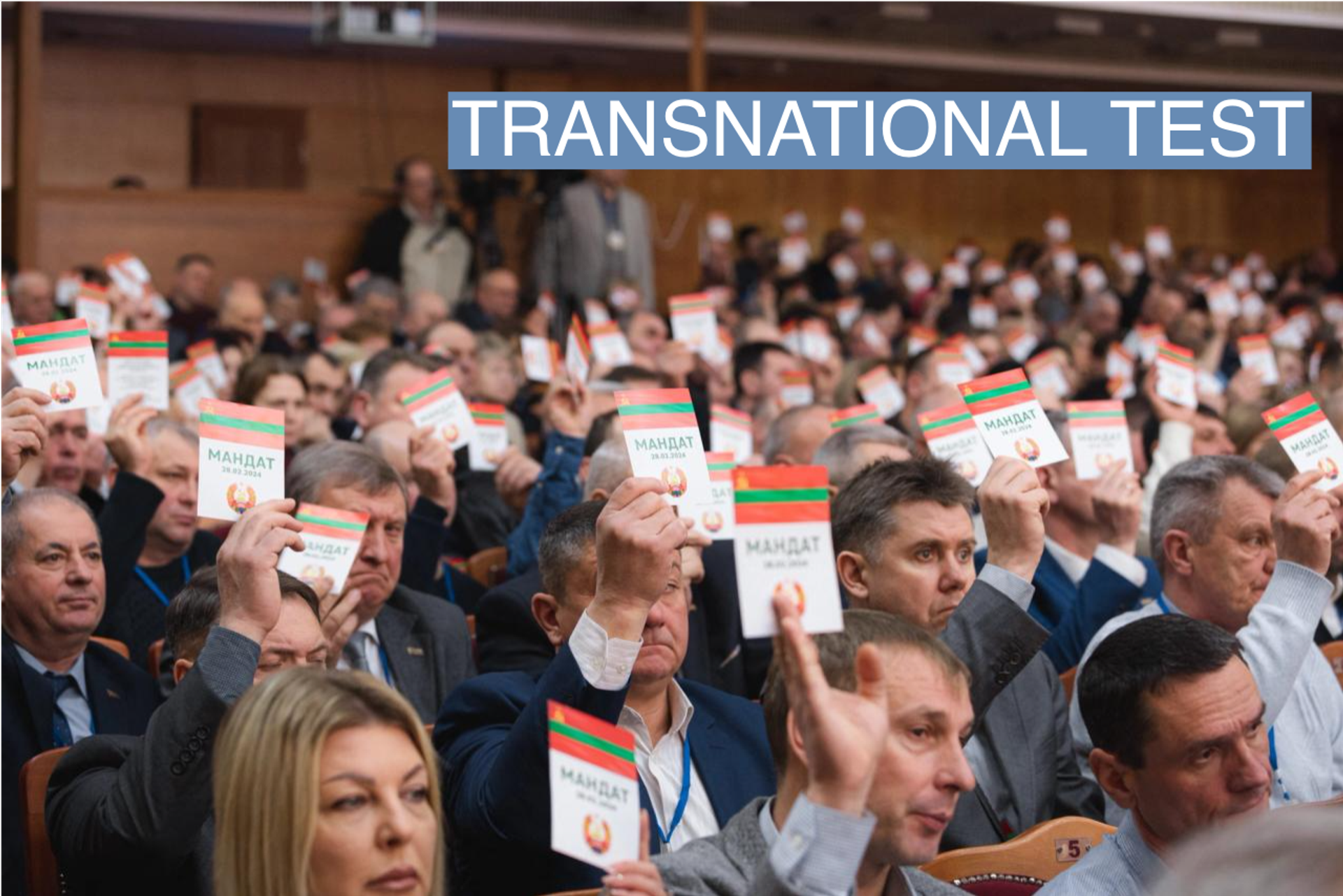The News
Transnistria — a breakaway, autonomous region of Moldova with a majority-Russian population — formally pleaded for Russia to “protect” it from Chisinau during a rare meeting of its Soviet-style Congress of Deputies.
The move came after the EU last year cleared Moldova to begin negotiations to join the bloc, with Chisinau hoping to join without leaving Transnistria behind.
Russian officials have clarified the plea was for economic — not military — protection, but the request has put international observers such as the U.S. on alert over concerns the Kremlin could use Transnistria as a catalyst to expand Moscow’s aggression against the West. Still, Transnistria — a region home to about 470,000 people — remains heavily reliant on EU economic benefits, and experts believe Russian military intervention in the region is more complicated than practical.
SIGNALS
Transnistria warms up to Moscow as Moldova grows closer to the West
The EU in 2023 gave the green light for Moldova to begin negotiations to join the bloc. Moldovan officials said they are willing to join without Transnistria, but reunification would help streamline the process. To coerce Transnistria into rejoining Moldova, Chisinau’s current strategy is “to hurry the process along by making life as difficult as possible” in the breakaway region, journalist Galiya Ibragimova wrote for the Carnegie Endowment for International Peace. In addition to making separatism a crime punishable by imprisonment, Moldova in January also suddenly scrapped duty exemptions for local businesses, meaning they must now pay both Moldovan and Transnistria taxes. The meeting of deputies where Transnistria asked Moscow for help this week was “directly triggered” by the tax changes, a Baltic Defense College lecturer told CNN.
Oligarchs hesitant to let go of EU business ties
It is a “misunderstanding” to suggest that Transnistria is “entirely monolithic and subservient to Moscow,” according to the Clingendael Institute, a Dutch think tank. The territory’s business elite know that the war in Ukraine has curtailed illicit trade that once helped fuel the economy, Clingendael reported, and the region needs access to European markets in order to support its legitimate business ventures. Even Transnistria’s oligarchs with their close ties to Moscow are starting to “lean towards Chisinau, attracted by the benefits of the association agreement with the EU,” according to Moldovan newspaper Timpul.
Formal annexation request unlikely, but sets conditions for hybrid warfare
Even before Transnistria’s request, analysts at the Institute for the Study of War believed that a formal Russian annexation of the region was “unlikely” because of the geographical difficulty in carrying out a military intervention: the 1,500 Russian peacekeeping troops currently in the territory are not enough to carry out an annexation, and Moscow would face difficulty sending reinforcements since Transnistria is landlocked between Romania and Ukraine. The Institute believes the more likely scenario is Moscow increasing “hybrid warfare” such as provoking more pro-Russia protests ahead of this year’s presidential election in Moldova, which would create an “imminent political crisis” for the ruling pro-EU party.

